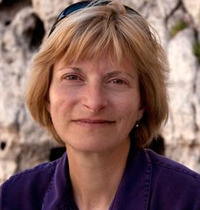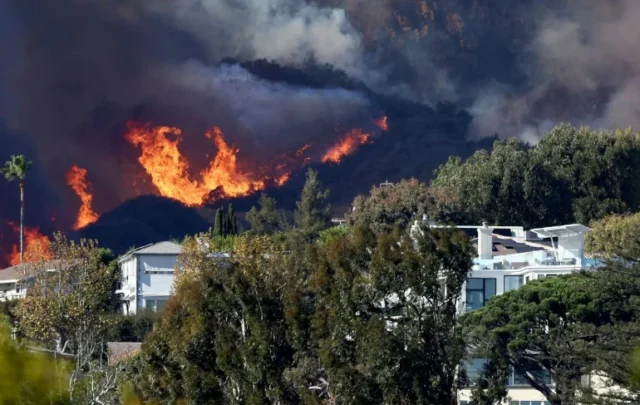National Geographic Fellow Sandra Postel views the world through a water lens, advocating for all to make simple and easy changes to their everyday lives that will help "Change the Course" of the Earth’s precious supply of freshwater.
Change the Course: Hope for “Troubled Waters”
By Sandra Postel, originally published by National Geographic
August 16, 2013


Sandra Postel
Sandra Postel directs the independent Global Water Policy Project, and lectures, writes and consults on global water issues. In 2010 she was appointed Freshwater Fellow of the National Geographic Society, where she serves as lead water expert for the Society’s freshwater efforts. Sandra is co-creator of Change the Course, the national freshwater conservation and restoration campaign being pioneered by National Geographic and its partners.
During 2000-2008, Sandra was visiting senior lecturer in Environmental Studies at Mount Holyoke College, and late in that term directed the college’s Center for the Environment. From 1988 until 1994, she was vice president for research at the Worldwatch Institute. Sandra is a Pew Scholar in Conservation and the Environment, and in 2002 was named one of the Scientific American 50, an award recognizing contributions to science and technology.
In 1992 Postel authored Last Oasis: Facing Water Scarcity, which now appears in eight languages and was the basis for a PBS documentary that aired in 1997. She is also author of Pillar of Sand: Can the Irrigation Miracle Last? (1999) and co-author of Rivers for Life: Managing Water for People and Nature (2003). Her article “Troubled Waters” was selected for inclusion in the 2001 edition of Best American Science and Nature Writing. Sandra has authored well over 100 articles for popular, scholarly, and news publications, including Science, Scientific American, Foreign Policy, The New York Times, and The Washington Post.
Tags: Water Supplies, Watershed Planning, Watershed Restoration
Related Articles
Review: In the Drift by Michael Swanwick
By Frank Kaminski, Mud City Press
Michael Swanwick’s 1985 novel In the Drift takes place in an alternate reality in which the 1979 Three Mile Island nuclear accident—rather than remaining a partial meltdown with minimal environmental impact, as in reality—escalated into a full-scale disaster that rendered much of the United States uninhabitable.
January 13, 2025
The urgent necessity of asset stranding
By Bart Hawkins Kreps, An Outside Chance
As Malm and Carton explain, if firm policies were put in place to “leave fossil fuels in the ground”, stranding the assets of fossil fuel companies, there would be “layer upon layer” of value destruction.
January 13, 2025
The ‘weather whiplash’ fueling the Los Angeles fires is becoming more common
By Kate Yoder, Grist
The kind of weather whiplash that fueled the fires is only becoming more common, and not just in the United States. A new analysis in the peer-reviewed academic journal Nature Reviews Earth & Environment has found that rapid shifts between heavy rain and drought (and vice versa) are becoming more intense — and the trend is unfolding faster than climate models have projected.
January 10, 2025




